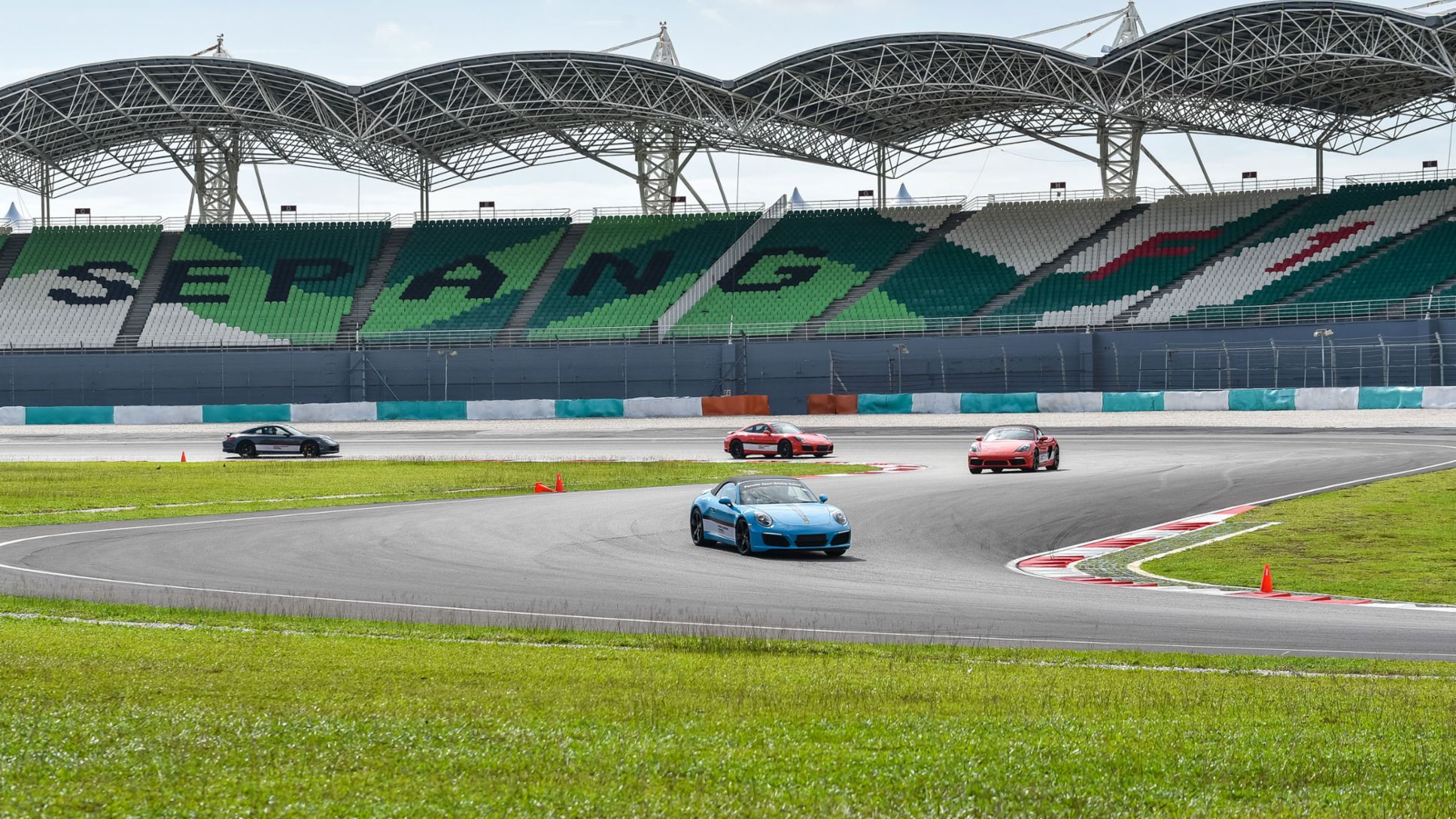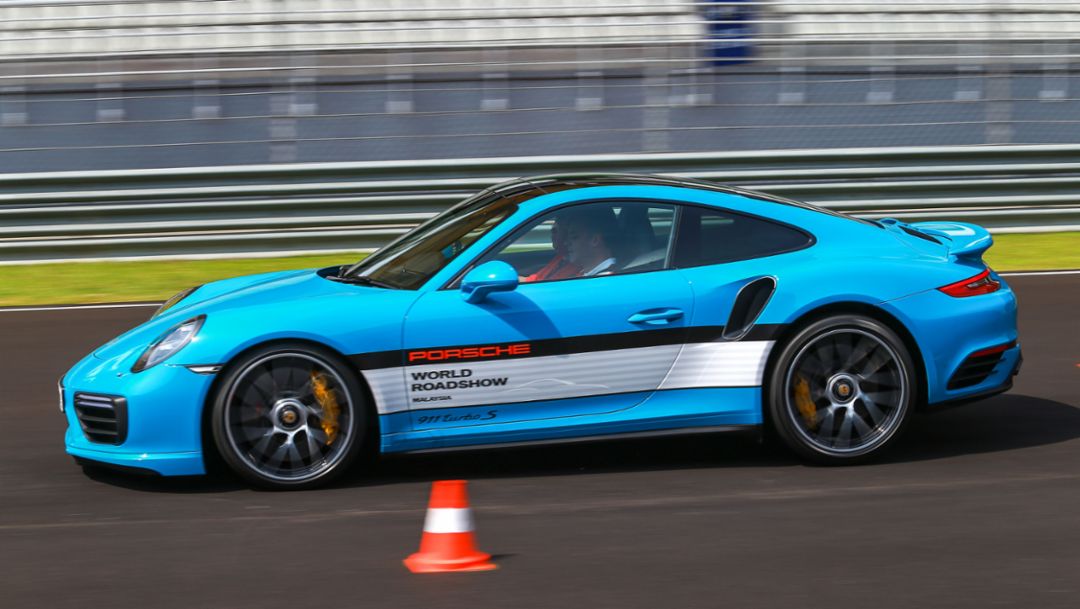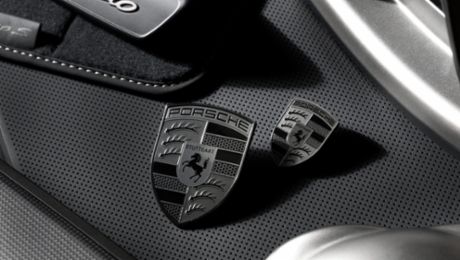Held at the critically acclaimed Sepang International Circuit, a motorsport F1 track situated conveniently near Kuala Lumpur International Airport, it is the ideal location for Porsche’s programme both for customers and also enthusiasts. Sepang, Malaysia was chosen for its well-known status as the hub for motor racing activities in the region, as well as the proximity to Kuala Lumpur city for recreational activities. The track itself is 5.543 kilometres long and is famous for its sweeping corners and wide straights.
Consisting of seven different and unique courses, Warm-up, Precision, Performance, Master, Race Track Experience, Porsche World Roadshow and Co-pilot, the main objective is to familiarise drivers how to control the dynamics of the car in different driving situations and with varying involvement of the vehicle’s electronic aid systems. Working in small groups ensures individual attention and rapid progress in learning; there is also the possibility to progress towards race driver level training. In addition to the training content, every programme ensures that the fun side of driving is not forgotten.
The Porsche Driving Experience features the full range of Porsche models, from the 718 series to the 911, Macan, Cayenne and the recently launched Panamera. Some top-end models are also available, including the 911 Turbo S, Cayenne Turbo S and Panamera Turbo.
Martin Limpert, Managing Director of Porsche Asia Pacific, said, “This is a milestone which we at Porsche Asia Pacific have always envisioned for the region, and I am thrilled that it is finally coming to fruition. There are numerous Porsche enthusiasts in the Asia Pacific region, both owners and fans alike, who have asked for a way to experience the full potential of our cars without the need to travel to faraway places. They would now have easy and convenient access to drive some of the best sports cars in the world in one of the best race tracks in Asia with the guidance of our Porsche certified instructors. I warmly invite anybody interested to register straightaway, as there are limited slots available for this highly requested programme.”
Info
Cars used in the courses can be the participants’ own vehicle or will be provided by Porsche Asia Pacific. Interested parties can immediately register their interest for any of these courses at the official website: www.porsche.com/driving-experience-asia-pacific
About Porsche Asia Pacific Pte Ltd
Porsche Asia Pacific Pte Ltd, a subsidiary of Dr. Ing. h.c. F. Porsche AG, commenced operations on 1 October 2001 and currently oversees 13 countries from its headquarters in Singapore. Offering support to its importers and dealers in After Sales, Business Development, Marketing, Public Relations and Sales, Porsche Asia Pacific manages the following countries in the region: Brunei, Cambodia, French Polynesia, Indonesia, Malaysia, Mongolia, New Caledonia, the Philippines, Singapore, Sri Lanka, Taiwan, Thailand and Vietnam. On February 2017, it was announced that Porsche AG will form a new subsidiary in Taiwan, Porsche Taiwan Ltd, by forming a joint-venture with its long-time business partner, Universal Motor Traders (UMT). Porsche Taiwan Ltd is expected to be inaugurated in 2018. In 2016, the Porsche Asia Pacific region delivered 5,589 vehicles of its 911, Cayenne, Macan, Panamera, 718 Boxster and 718 Cayman to its customers, setting another record year.
Consumption data
911 Turbo: Fuel consumption combined 9.1 l/100 km; CO2-emissions 212 g/km
911 Turbo Cabriolet: Fuel consumption combined 9.3 l/100 km; CO2-emissions 216 g/km
911 Turbo S: Fuel consumption combined 9.1 l/100 km; CO2-emissions 212 g/km
911 Turbo S Cabriolet: Fuel consumption combined 9.3 l/100 km; CO2-emissions 216 g/km
Cayenne Turbo S: Fuel consumption combined 11.5 l/100 km; CO2-emissions 267 g/km
Panamera Turbo: Fuel consumption combined 9.4 – 9.3 l/100 km; CO2-emissions 214 – 212 g/km
718 Boxster (model range): Fuel consumption combined 8.1 – 6.9 l/100 km; CO2 emissions 184 – 158 g/km
718 Cayman (model range): Fuel consumption combined 8.1 – 6.9 l/100 km; CO2 emissions 184 – 158 g/km



